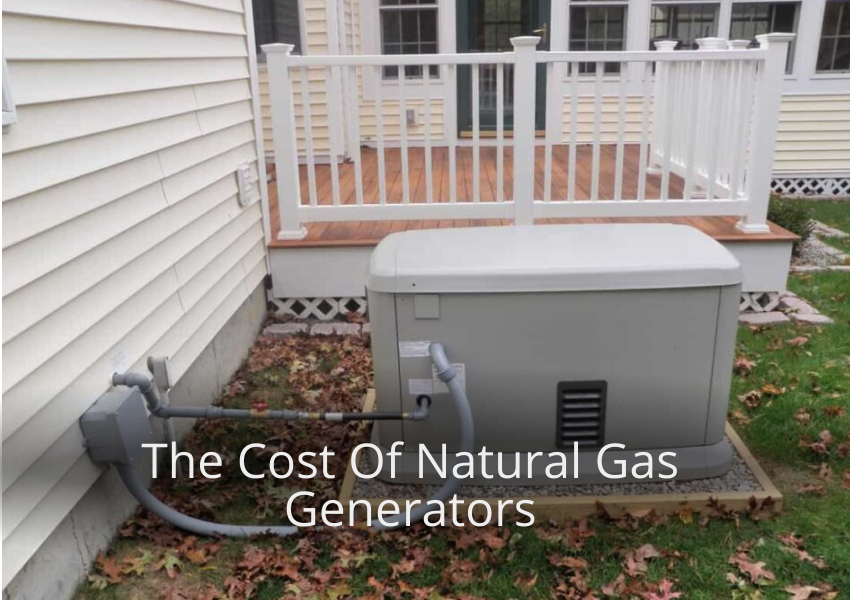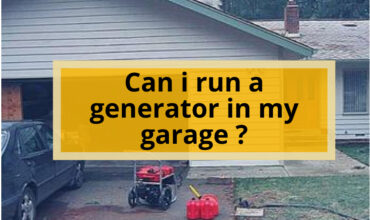Natural gas generators have gained popularity as a backup power source for homes and businesses due to their reliability and cost-effectiveness. However, the cost of these generators can vary depending on various factors such as size, installation, and maintenance.
In this article, we will delve into the cost of natural gas generators and provide information on the factors that affect their price. The article will begin by exploring the different types of generators available in the market and highlight the pros and cons of each. We will then delve into the factors that affect the cost of natural gas generators, including the size of the generator, installation costs, and maintenance expenses.
Additionally, we will provide tips on how to choose the right generator based on your power needs and budget. By the end of this article, readers will have a comprehensive understanding of the cost of natural gas generators and the various components that contribute to their pricing.
Factors Affecting Price
The cost of natural gas generators varies depending on factors such as the generator’s size, power output, and type of usage, as well as additional costs associated with installation and maintenance. Efficiency considerations are also crucial when considering the cost of natural gas generators. High-efficiency generators may cost more upfront, but they can save money in the long run by reducing the amount of fuel needed to power the generator.
Likewise, generators that produce less noise and require less maintenance over time can also save money. Environmental impact is another factor to consider when looking at the cost of natural gas generators. While natural gas is a cleaner-burning fuel than coal or oil, it still produces greenhouse gas emissions.
Therefore, choosing a natural gas generator with the lowest emissions possible can help mitigate the environmental impact and potentially save money in the long run if regulations become stricter. Additionally, some states offer incentives for purchasing and using environmentally friendly generators, which can offset some of the costs associated with buying and installing the generator.
Also read : Are Whole House Standby Generators Tax Deductible?

Sizing and Installation Costs
Sizing and installation of a generator is crucial in ensuring that the power needs of a building are met. The general rule of thumb for sizing a generator is to go for 50 kW plus 10 watts per square foot of the building. However, it is essential to consider the intended use of the generator and the power requirements of the equipment to be powered. A generator that is too small will not provide enough power, while an oversized generator will increase the initial investment, maintenance, and operating costs.
Generator efficiency is another crucial factor to consider when sizing and installing a generator. High-efficiency generators consume less fuel, which translates to lower operating costs and reduced environmental impact. Additionally, they can generate more power using less fuel, which makes them an ideal choice for areas with fuel supply limitations or high fuel costs.
Proper installation of a generator is also critical in ensuring optimal efficiency and performance. It is essential to follow the manufacturer’s installation guidelines and hire a professional installer to ensure that the generator is correctly installed and connected to the building’s electrical system.
Finally, it is crucial to consider the environmental impact of the generator when selecting and installing one. Natural gas generators are generally considered more environmentally friendly than diesel generators, as they produce fewer emissions and pollutants. However, it is essential to consider the specific environmental regulations in your area and choose a generator that meets those standards.
Factors to consider when sizing a generator:
- Intended use of the generator
- Power requirements of the equipment to be powered
- Power needs of the building
Benefits of high-efficiency generators:
- Lower fuel consumption and operating costs
- Reduced environmental impact
- Ability to generate more power using less fuel
Tips for proper installation:
- Follow the manufacturer’s installation guidelines
- Hire a professional installer
- Connect the generator to the building’s electrical system according to code
Environmental considerations:
- Natural gas generators are generally more environmentally friendly than diesel generators
- Consider specific environmental regulations in your area when choosing a generator.
also read : Top Generator Picks: Inverter, Portable, Whole-House
Maintenance and Service Plans
Maintenance and service plans play a crucial role in ensuring the long-term reliability and optimal performance of a natural gas generator. Preventative maintenance needs to be performed on the unit on at least a semi-annual, but preferably monthly basis. This includes tasks such as changing the oil, replacing air and fuel filters, and inspecting the spark plugs. Neglecting these routine maintenance tasks can lead to decreased efficiency, increased fuel consumption, and even generator failure.
Generac and other brands offer maintenance kits and accessories for DIY-ers who want to take on basic maintenance tasks themselves. However, heavy-duty commercial generators that see dozens of hours of usage per week are best entrusted to professional maintenance personnel.
Maintenance plans of one to 10 years are available, with discounts for committing to longer terms. A home standby generator up to 20 kW may cost around $500 per year to service, while moving up into the commercial sizes, service plans can run from $1,0000 per year to $2,000+. It is important to factor in these ongoing maintenance costs when considering the overall cost of a natural gas generator.
Also read : Portable Generators – Can They Power Your Home?
Frequently Asked Questions
Are there any tax credits or incentives available for purchasing a natural gas generator?
While tax credit eligibility varies by state and utility company, there are currently no federal tax credits or incentives available for purchasing a natural gas generator. However, compared to diesel and gasoline generators, natural gas generators have lower fuel costs and emissions.
Can natural gas generators be used in remote locations where there is no access to a public utility?
Off-grid natural gas generators can be used in remote locations without access to public utilities. They can be a cost-effective option compared to diesel generators, with lower fuel costs and longer lifespans. However, installation costs and maintenance requirements should also be considered.
How long does a natural gas generator typically last before needing to be replaced?
Natural gas generators have an average lifespan of 20-30 years with regular maintenance. Maintenance costs can vary depending on the size of the generator and frequency of usage. Advantages of natural gas generators for home use include reliability and lower fuel costs, while drawbacks include high upfront costs and reliance on the gas supply.
What kind of noise level can be expected from a natural gas generator?
The noise level of a natural gas generator depends on its size and capacity, but they generally produce moderate to high levels of noise. Regular maintenance is required to minimize noise levels and ensure optimal performance.
Are there any environmental concerns associated with using a natural gas generator?
The environmental impact of using natural gas generators includes emissions of carbon monoxide, nitrogen oxide, and particulate matter. Safety precautions, such as proper ventilation and installation, can mitigate these risks.






